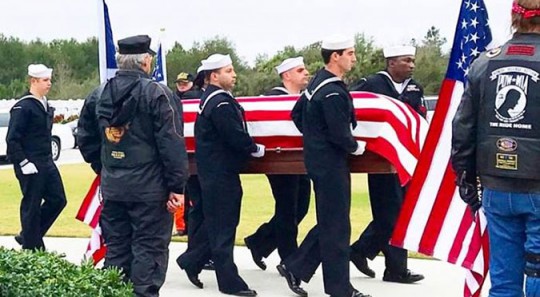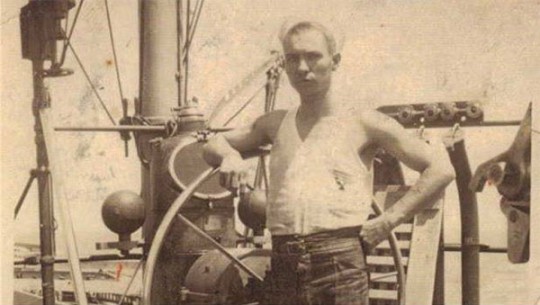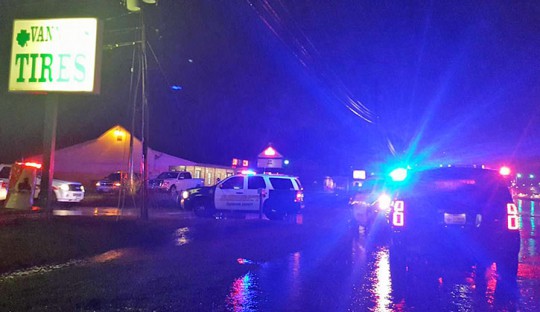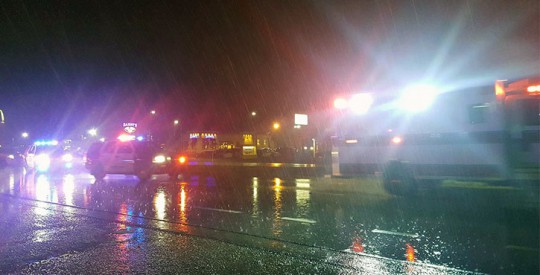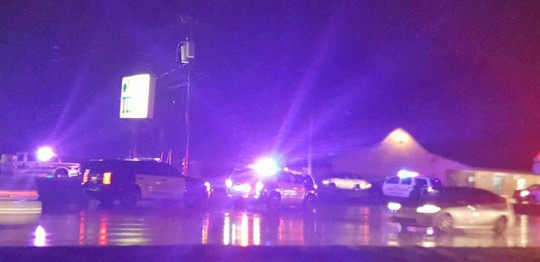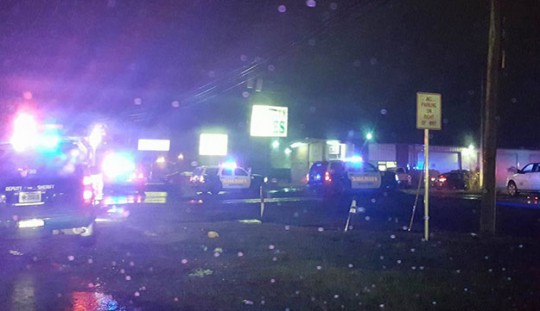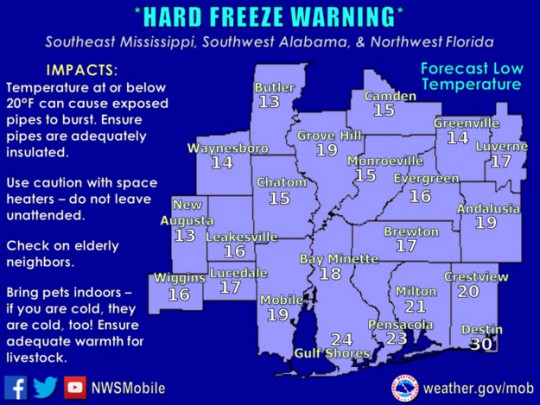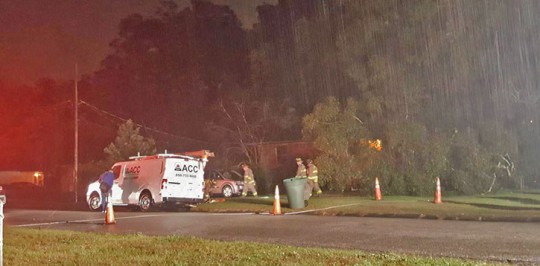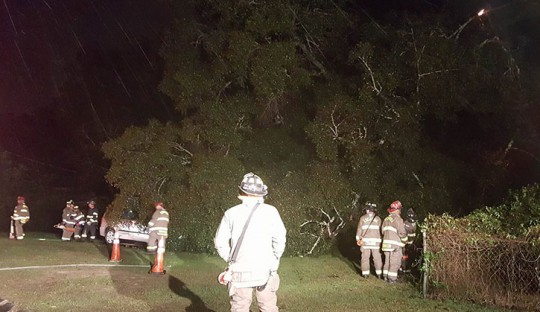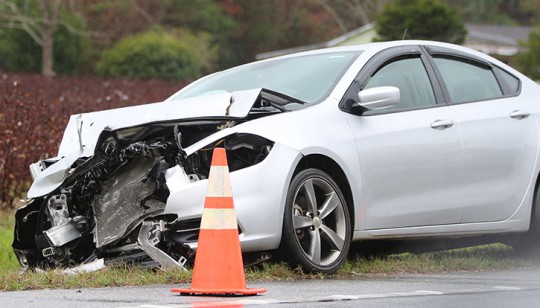Atmore Sailor Who Died In Pearl Harbor Attack Laid To Rest In Pensacola
January 7, 2017
A World War II sailor from Atmore that was killed in the attack on Pearl Harbor 75 years ago was laid to rest Friday with full military honors in Pensacola.
Navy Water Tender 1st Class Walter H. Sollie was 37-years old on December 7, 1941. He was assigned to the USS Oklahoma, which was moored at Ford Island, Pearl Harbor, when the ship was attacked by Japanese aircraft.
The USS Oklahoma sustained multiple torpedo hits, which caused it to quickly capsize. The attack on the ship resulted in the deaths of 429 crewmen, including Sollie. No single vessel at Pearl Harbor, with the exception of the USS Arizona, suffered as many fatalities.
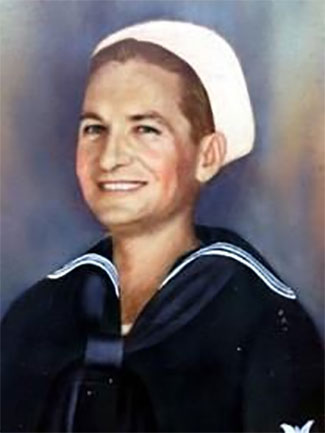 From December 1941 to June 1944, Navy personnel recovered the remains of the deceased crew, which were subsequently interred in the Halawa and Nu’uanu cemeteries in Hawaii.
From December 1941 to June 1944, Navy personnel recovered the remains of the deceased crew, which were subsequently interred in the Halawa and Nu’uanu cemeteries in Hawaii.
In September 1947, tasked with recovering and identifying fallen U.S. personnel in the Pacific theater, members of the American Graves Registration Service (AGRS) disinterred the remains of U.S. casualties from the two cemeteries and transferred them to the Central Identification Laboratory at Schofield Barracks, Hawaii. The laboratory staff was only able to confirm the identifications of 35 men from the USS Oklahoma at that time.
The AGRS subsequently buried the unidentified remains in 46 plots at the National Memorial Cemetery of the Pacific (NMCP), known as the Punchbowl, in Honolulu. In October 1949, a military board classified those who could not be identified as non-recoverable, including Sollie.
In April 2015, the Deputy Secretary of Defense issued a policy memorandum directing the disinterment of unknowns associated with the USS Oklahoma. On June 15, 2015, DPAA personnel began exhuming the remains from the NMCP for analysis.
To identify Sollie’s remains, scientists from DPAA and the Armed Forces DNA Identification Laboratory used mitochondrial DNA analysis, which matched two great nieces, as well as circumstantial evidence and laboratory analysis, to include dental comparisons, which matched Sollie’s records.
On November 23, 1904, Sollie was the first born child of Frederick Ernest and Florence Vallie McCrary in Myrtlewood, AL. The family lived in the Myrtlewood area until they moved to Atmore in the late 1920’s.
Pictured top: Walter Sollie, who died in the attack on Pearl Harbor, is laid to final rest Friday at Barrancas National Cemetery in Pensacola. Photo for NorthEscambia.com, click to enlarge. Pictured inset and below: Sollie as seen during his time of service. Courtesy photos for NorthEscambia.com, click to enlarge.
9 Mile Shooting Victim Identified; Suspects On The Run
January 7, 2017
[Updated] The victim of a fatal shooting Friday night on East 9 Mile road has been identified, as the Escambia County Sheriff’s Office continues to search for two suspects.
According to the Escambia County Sheriff’s Office, Allen Ray Elliott was the victim of a shooting that happened in the 100 block of East 9 Mile Road near Holsberry. Authorities have determined that a drug deal turned sour when Elliott was shot. He died from his injuries on the way to the hospital.
Deputies responded about 5:45 p.m. to the 100 block of East Nine Mile Road near Holsberry Road where they found a man suffering from a gunshot wound in an area behind Vannoy’s Tires.
Deputies were reportedly searching for two black male suspects last seen fleeing the scene in a dark-colored vehicle. Any further descriptions have not been released.
Pictured top: The scene of a shooting on East 9 Mile Road Friday night. Pictured below: Deputies escort an ambulance from the scene. Pictured bottom: More scene photos. NorthEscambia.com photos by Kristi Barbour, click to enlarge.
‘Mass Confusion’ As Florida Pot Law Goes Into Effect
January 7, 2017
Even as the state prepares to carry out a constitutional amendment authorizing medical marijuana, a lack of guidance from health officials could create a “very murky and dangerous legal area” for patients and doctors.
Authors of the amendment, industry insiders and legislative leaders have called on the Department of Health to clarify what doctors and dispensing organizations can legally do under existing state laws and the voter-approved amendment that went into effect on Tuesday.
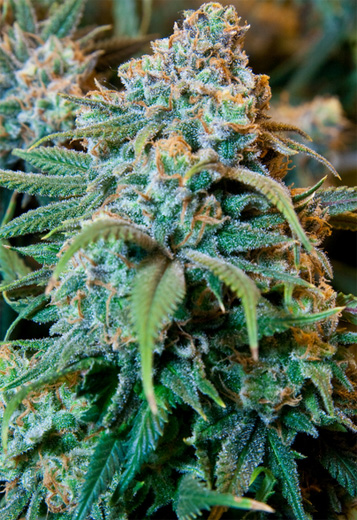 To date, the health agency has remained mum, referring only to the language of the constitutional amendment overwhelmingly approved by voters in November and to state laws approved in 2014 and 2016.
To date, the health agency has remained mum, referring only to the language of the constitutional amendment overwhelmingly approved by voters in November and to state laws approved in 2014 and 2016.
Health officials have repeatedly refused requests for an interview with Office of Compassionate Use Director Christian Bax, who has been at the helm since the state’s first pot purveyors started cultivating this year.
Recent questions center on whether doctors are allowed to add to an existing state database patients who qualify under the constitutional amendment, which includes a host of diseases not previously authorized for cannabis treatment.
Medical industry officials and a state lawmaker instrumental in the passage of current laws regulating medical marijuana advised doctors to be cautious.
“If you are suffering from one of the conditions that is listed in the constitutional amendment and you sought medical cannabis for those treatments, you would be working and dealing in a very murky and dangerous legal area,” state Sen. Rob Bradley, R-Fleming Island, told The News Service of Florida Tuesday.
A Department of Health spokeswoman provided little insight Tuesday when asked whether physicians are allowed to add patients eligible under so-called Amendment 2 to the existing database.
“Doctors should probably consult their legal representation to ask that question,” agency spokeswoman Mara Gambineri said in a telephone interview.
Under current laws, doctors may order non-euphoric marijuana for patients with chronic muscle spasms or cancer, or full-strength marijuana for terminally ill patients.
But some doctors have started to add patients who meet the requirements of the broader Amendment 2 to the state-run “compassionate use registry,” even before health officials have crafted rules governing the newly approved amendment.
“I’m leaning toward telling any physician out there to be extremely careful,” Florida Medical Association General Counsel Jeff Scott told The News Service on Tuesday. “I certainly wouldn’t proceed to order medical marijuana under the expanded category of conditions pursuant to Amendment 2 until there’s been legislative or rule-making action by the department.”
Bradley said he plans to shepherd a bill laying out guidelines for the constitutional amendment during the legislative session that begins in March.
In the meantime, proponents of Amendment 2 as well as some marijuana operators are demanding that the department provide adequate guidance to the industry about the proposal approved by more than 70 percent of Floridians in November.
The amendment, heavily bankrolled by Orlando trial lawyer John Morgan, legalized marijuana for patients with a host of illnesses, including cancer, glaucoma, AIDS, post-traumatic stress disorder, Crohn’s disease, Parkinson’s disease, multiple sclerosis or other debilitating medical conditions of the same kind or class enumerated by the amendment.
Ben Pollara, campaign manager of the political committee that led the drive to pass the amendment, accused the department of failing to provide clarity to doctors and patients about the impact of the constitutional amendment.
“And until the department issues some serious clarifications, there’s a state of mass confusions with patients and physicians,” Pollara said in a telephone interview Tuesday. “It’s creating some undue chaos that needs to be alleviated sooner rather than later.”
Privately, industry operators complained fiercely about the department’s silence on the issue.
The agency has a brief message about the amendment posted on its website, advising that the initiative would become effective Tuesday. The current Florida law “remains in effect and the Florida Department of Health, physicians, dispensing organizations, and patients remain bound by existing law and rule,” the website reads. “Following Amendment 2’s effective date, the Department is directed to promulgate rules to implement Amendment 2 within 6 months, and to implement those regulations within 9 months.”
Another unanswered question is whether the dispensing organizations — licensed by the state to grow, process and distribute medical marijuana — will be in trouble for providing cannabis to patients who are registered in the state database but do not meet eligibility criteria under the 2014 and 2016 laws.
Currently, a patient must have a 90-day relationship with a doctor, who has to certify that the patient meets the requirements for the non-euphoric marijuana or, if terminally ill, for full-strength marijuana. The doctor then must enter the patient and treatment delivery orders into a state-run database.
State law makes it a crime for doctors to enter patients into the database if the patients do not meet the current statutory criteria for marijuana treatment.
Under Amendment 2, patients do not have to be entered into the statewide registry. Instead, doctors recommend the marijuana treatment, patients are then given identification cards — issued by the health department — and “medical marijuana treatment centers” fill orders for the cannabis treatment.
The amendment gives the state six months to craft rules related to the medical marijuana treatment centers, and nine months to start issuing patient ID cards.
“If there is confusion as to who is allowed to be on the registry or not, then that puts the dispensing organizations in the position of potentially selling to someone who is not legally authorized to make a purchase,” Pollara said.
But the head of at least one dispensing organization believes companies like hers do not have to wait for the amendment to be implemented, as long as doctors have ordered the treatment.
“There is definitely some confusion,” Trulieve CEO Kim Rivers said in an interview. “I can lose my license if I’m dispensing to someone who’s not on the registry. If I am dispensing to someone on the registry, following all of our protocols, I do not believe that our license is at risk.”
The industry remains divided on the issue.
“Given the significant public interest regarding Amendment 2, it’s not unexpected that there are divergent opinions as to the implementation of the amendment in this highly regulated industry,” lawyer John Lockwood said. “But I would hope that we will not play politics regarding this issue and will instead work to ensure that the will of the voters is respected.”
by Dara Kam, The News Service of Florida
Hard Freeze Warning Tonight; Low In The Teens
January 7, 2017
There is a hard freeze warning in effect for the entire area tonight. Here is your official North Escambia area forecast:
Tonight: Clear, with a low around 17. Wind chill values between 5 and 10. North wind 10 to 15 mph.
Sunday: Sunny, with a high near 45. Wind chill values between 5 and 15 early. Northeast wind 5 to 10 mph.
Sunday Night: Mostly clear, with a low around 23. Wind chill values between 15 and 20. East wind around 5 mph.
Monday: Sunny, with a high near 54. Southeast wind around 5 mph.
Monday Night: Areas of fog after midnight. Otherwise, partly cloudy, with a low around 39. East wind 5 to 10 mph.
Tuesday: Areas of fog before 9am. Otherwise, mostly cloudy, with a high near 65. Southeast wind 5 to 10 mph.
Tuesday Night: A 20 percent chance of showers. Areas of fog after midnight. Otherwise, mostly cloudy, with a low around 56. South wind around 5 mph.
Wednesday: A 20 percent chance of showers. Areas of fog before 9am. Otherwise, partly sunny, with a high near 72. South wind 5 to 10 mph.
Wednesday Night: Patchy fog after midnight. Otherwise, mostly cloudy, with a low around 58.
Thursday: Mostly sunny, with a high near 73.
Thursday Night: Patchy fog. Otherwise, partly cloudy, with a low around 58.
Friday: A 20 percent chance of showers. Mostly sunny, with a high near 74.
Freezing Cold — Pets, Plants, Pipes And Other Tips
January 7, 2017
 When temperatures fall into the 20’s, it is time to take necessary precautions to protect pipes, pets and plants, and check on elderly friends and neighbors.
When temperatures fall into the 20’s, it is time to take necessary precautions to protect pipes, pets and plants, and check on elderly friends and neighbors.
For tonight’s latest forecast, click here.
Here are ways to stay safe during this year’s first round of cold temperatures, courtesy of the American Red Cross:
- Wear layers of lightweight clothing to stay warm. Gloves and a hat will help prevent losing body heat.
- Know the signs of hypothermia – confusion, dizziness, exhaustion and severe shivering. If someone has these symptoms, they should get immediate medical attention.
- Watch for symptoms of frostbite including numbness, flushed gray, white, blue or yellow skin discoloration, numbness or waxy feeling skin.
- Bring the pets indoors. If that’s not possible, make sure they have enough shelter to keep them warm and that they can get to unfrozen water.
- Avoid frozen pipes – run water, even at a trickle, to help prevent them from freezing. Keep the thermostat at the same temperature day and night to help avoid freezing pipes.
- Do not use a stove or oven to heat the home.
- Space heaters should sit on a level, hard surface and anything flammable should be kept at least three feet away.
- If using a fireplace, use a glass or metal fire screen large enough to catch sparks and rolling logs.
- Turn off space heaters and make sure fireplace embers are out before leaving the room or going to bed.
And here are a few extra details and tips from ECUA on protecting pipes against the freeze:
- Insulate pipes or faucets in unheated areas: Pipes located in unheated areas of your house, such as a garage or crawl space under the house or in the attic, are subject to freezing. If you have time to do this before freezing temperatures arrive, wrap these pipes with insulation materials made especially for this purpose. These materials can be found in most hardware stores or home improvement centers.
- Disconnect and drain outdoor hoses: Detach all hoses from faucets and allow them to drain. This action guards against the water in the hose or pipe from freezing and bursting the faucet or pipe to which it is connected.
- Run a trickle of water: When forecasts call for sustained and / or severe freezing temperatures, run a thin trickle of water from the faucet furthest from the water line coming to your house. Usually this is in a room at the back of the house or outside, in the yard. Allowing the water to circulate through your home’s plumbing helps to keep it from freezing. Some consider this a waste of water but the cost of the water used is extremely slight compared to repairing broken pipes and the resulting water damage.
- Remember the backflow preventer: Residents and business owners who have backflow preventers on their properties for water lines, fire lines, irrigation systems, and swimming pools need to protect their backflow preventers from freeze as well. Extended freezes can burst the body of the backflow assembly, rendering it useless. Wrap these pipes with insulation materials, made especially for this purpose. These materials can be found in most hardware stores or home improvement centers. If the device and the water line are not in use at this time (i.e., irrigation system or swimming pool lines), shut off the water supply line and drain the backflow device.
Molino Ballpark Spring Registration Now Underway
January 7, 2017
 Spring registration is underway at the Molino Ballpark.
Spring registration is underway at the Molino Ballpark.
Registration will be held from 10 a.m. until 1 p.m. each Saturday through January 28. The registration fee is $65 for t-ball for ages 4-6, baseball for ages 7-15 an softball for ages 7-16. Signup early by January 14 for an additional $5 off.
Tree Falls Onto House
January 7, 2017
A tree fell onto a house on Flagler Driver Friday night, bringing down power lines. Neighbors said the elderly couple inside the home was able to make it out safely. At one point, the live power line sparked a small fire in the tree’s branches. NorthEscambia.com photos by Kristi Barbour, click to enlarge.
Florida Gov’t Weekly Roundup: Murky Times In Tally
January 7, 2017
It was a confusing week in state government and politics, whether your interest was in the state’s death penalty or its medical-marijuana industry.
 The Florida Supreme Court issued a response to a state request to clarify a major death-penalty ruling — and then took it back, a head-spinning series of events that was labeled “bizarre” by a high-ranking Republican lawmaker.
The Florida Supreme Court issued a response to a state request to clarify a major death-penalty ruling — and then took it back, a head-spinning series of events that was labeled “bizarre” by a high-ranking Republican lawmaker.
Meanwhile, anyone looking for advice on the state of the law about medical cannabis after voters overwhelmingly approved a constitutional amendment in November might have to wait awhile. The Florida Department of Health has largely been mum, even as the constitutional amendment formally took effect.
Less confusing was what Gov. Rick Scott will make one of his top priorities during the legislative session that kicks off in March: counterterrorism squads that the governor says will help respond to attacks like the summer massacre at the Pulse nightclub in Orlando. Then again, as with any budget recommendation issued in January, the fate of that proposal is also a bit murky for now.
MOTION TO STRIKE
The high court hubbub started Wednesday morning, when the Supreme Court issued an order that would have denied Attorney General Pam Bondi’s “request for clarification” in a death penalty case. Less than two hours later, the court more or less said: Never mind.
In a highly unusual move, justices rescinded the order, which would have barred prosecutors from seeking the death penalty in capital cases. The mistakenly issued opinion and its almost immediate retraction further muddled Florida’s embattled death penalty, on hold for nearly a year following a U.S. Supreme Court decision last January.
“The whole thing is bizarre,” House Judiciary Chairman Chris Sprowls, a Palm Harbor Republican and a former prosecutor, told The News Service of Florida.
The order came in the case of Larry Darnell Perry, one of a number of high-profile death penalty cases related to the U.S. Supreme Court ruling last January. That ruling found Florida’s capital sentencing system unconstitutional because it gave too much power to judges, instead of juries.
The Legislature quickly passed a new law intended to address the U.S. Supreme Court ruling. But the Florida Supreme Court struck down the new statute because it did not require unanimous jury recommendations for death to be imposed.
Bondi asked the court to clarify a ruling in Perry’s case that said the new state law was unconstitutional and that it “cannot be applied to pending prosecutions.”
Wednesday’s order would have denied Bondi’s request for clarification. But the court vacated the order because it was released prematurely, according to spokesman Craig Waters. Instead, it should have been held until separate, pending opinions were issued.
“The rule is that courts wait until all of the referenced opinions have been released to the public,” he wrote. “Due to purely human error, that process failed today. The Florida Supreme Court regrets the error and is reexamining its internal procedures to prevent similar errors from occurring in the future.”
In a dissent to the now-vacated opinion, Justice Ricky Polston referenced two death-penalty cases not yet decided by the court. Those cases focus on whether the new law could apply to cases already underway, if judges instruct juries that unanimous recommendations are required for the death penalty to be imposed.
Polston objected that the court should clarify its October ruling in Perry’s case, which he wrote “has created confusion and paralysis across the state regarding the death penalty and capital trials.”
Instead, the majority’s vacated order would have struck down the entire section of the new law dealing with sentencing in capital cases.
Pete Mills, an assistant public defender in the 10th Judicial Circuit, said Wednesday’s rescinded order “will likely be reissued in a similar form” in the future.
“This is a hiccup. This caused confusion for some people but was resolved very quickly,” said Mills, who is chairman of the Florida Public Defenders Association Death Penalty Steering Committee.
When and if that issue gets cleared up, there could be another legal battle over capital punishment in the offing, after state corrections officials adopted a new lethal-injection procedure that includes a drug never before used for executions and another used only by accident.
The Department of Corrections posted the revised three-drug lethal injection protocol on its website Thursday, a day after Secretary Julie Jones signed the new procedure. The move appears to have been prompted by shortages of lethal injection drugs, with manufacturers refusing to sell their substances for use in executions.
Corrections officials expect litigation in response to the new drugs, said corrections spokeswoman Michelle Glady.
“That’s very typical,” she said.
GREEN HAZE
Medical marijuana became legal this week in Florida for a broad range of conditions. Kind of. What that means is still up for grabs.
Citing a lack of guidance from state officials, authors of the November constitutional amendment, industry insiders and legislative leaders have called on the Department of Health to clarify what doctors and “dispensing organizations” can legally do under existing state laws and under the voter-approved measure that went into effect Tuesday.
But the department largely answered by referring to the language of the constitutional amendment and to state laws approved in 2014 and 2016. Those laws allowed more limited uses of medical cannabis.
Recent questions center on whether doctors are allowed to add to an existing state database patients who qualify under the constitutional amendment, which includes a host of diseases not previously authorized for cannabis treatment.
Medical industry officials and a state lawmaker instrumental in the passage of the current laws advised doctors to be cautious.
“If you are suffering from one of the conditions that is listed in the constitutional amendment and you sought medical cannabis for those treatments, you would be working and dealing in a very murky and dangerous legal area,” said state Sen. Rob Bradley, R-Fleming Island.
Bradley said he plans to shepherd a bill laying out guidelines for the constitutional amendment during the legislative session that begins in March.
A Department of Health spokeswoman provided little insight Tuesday when asked whether physicians are allowed to add patients eligible under so-called Amendment 2 to the existing database.
“Doctors should probably consult their legal representation to ask that question,” agency spokeswoman Mara Gambineri said.
Under current laws, doctors may order non-euphoric marijuana for patients with chronic muscle spasms or cancer, or full-strength marijuana for terminally ill patients.
But some doctors have started to add patients who meet the requirements of the broader Amendment 2 to the state-run “compassionate use registry,” even before health officials have crafted rules governing the newly approved amendment.
“I’m leaning toward telling any physician out there to be extremely careful,” Florida Medical Association General Counsel Jeff Scott said.
FIGHTING TERRORISM
Generally, governors will take just about any help they can get in promoting their top legislative priorities. But Gov. Scott could have done without Friday’s reminder of the new American reality, when a gunman opened fire and killed multiple people at the Fort Lauderdale airport.
Early reports gave no real indication of whether the suspect taken into custody was motivated by the formal kind of terrorism or the more general variety, but either could boost the profile of the security issues behind Scott’s request to set up anti-terrorism squads across Florida.
During a media blitz this week, Scott announced that he will include $5.8 million in his 2017-2018 budget proposal to fund a request for counterterrorism efforts by the Florida Department of Law Enforcement.
That Scott’s request represented a sliver of the state’s $80 billion-plus spending plan could reflect the fiscal realities that will face state lawmakers when the legislative session begins March 7. The House and Senate will confront a tightening fiscal outlook that is already prompting talks that increases anywhere in the budget will require cuts elsewhere.
In making his pitch for the counterterrorism money, Scott drew upon the “ISIS-inspired” massacre of 49 people at the Pulse nightclub in Orlando last June, which the governor said was “an attempt to rip at the seams of our society.”
“No family should go through what so many experienced after the attack on the Pulse nightclub,” Scott said. “And we will do everything in our power to make sure this never happens again.”
The money proposed by Scott would fund 46 new special-agent and analyst positions, which would be divided into eight squads throughout the state “whose sole focus” would be counterterrorism, FDLE Commissioner Rick Swearingen said Wednesday.
“As the threats to our nation increase, FDLE is ready to move to the next level,” Swearingen said.
STORY OF THE WEEK: The Florida Supreme Court issued an order about a request for more clarity on its death penalty rulings — but might have caused more confusion by quickly rescinding it.
QUOTE OF THE WEEK: “We can pull a blanket over our head and crawl under it and quit competing with the rest of the world, and there seems to be some folks that are advocating that.” — Senate Appropriations Chairman Jack Latvala, R-Clearwater, defending economic incentive programs.
by Brandon Larrabee, The News Service of Florida
Lamar C. “Louie” Lewis
January 7, 2017
Lamar C. “Louie” Lewis of Berrydale, Florida passed away peacefully at home surrounded by his loving family on January 4, 2017.
Lamar Lewis was born in Brewton, Alabama to Irvin Lewis and Penny Ruth (Barnes) Todd. He served our country in the United States Navy. While stationed in San Diego, California, he met his beloved wife and began his family of five children. He retired as an industrial mechanic in Pace, Florida. He attended St. Maurice Catholic Church in Brewton, Alabama.
Mr. Lewis is preceded in death by his parents Irvin Lewis and Penny Ruth (Barnes) Todd, his two brothers Roy Colmer Lewis and Cortez Lewis. He is lovingly remembered by his wife of 58 years Mary V. Lewis, children Barbara (Steve) Scott, Bill (Debbi) Lewis, Beth Anne (Madison) Whitfield, Becky Miller, Amy (Tommy) Kindig. Also, surviving Lamar are his sister Imogene Reeder, brothers Jerrell Lewis and Larry Lewis, his treasured grandchildren, great- grandchildren, and his “man’s best friend” of twelve years, Sophie.
The family would also like to express their love and appreciation to Lora Lambeth (care-giver), Chasity Lowery (Covenant Hospice) and Reverend Patrick Madden (St. Maurice Catholic Church) for becoming part of the family as we cherished this time together.
On Monday, January 9, 2017 the Celebration of Lamar’s life will begin with a time of fellowship and visitation with the family from 2:00-3:30 followed by a Celebration of Life memorial service beginning at 3:30 at the Berrydale Baptist Church on Highway 4.
In lieu of flowers, donations may be made to:
St. Maurice Catholic Church (Building Fund), PO Box 206 Brewton, Alabama 36426.
or
Berrydale Volunteer Fire Department, 13000 FL-87, Jay, FL 32565.
Driver Uninjured In Highway 97 Crash With Semi Truck
January 6, 2017
A driver received only minor injuries when she rear-ended a semi-trailer on Highway 97 in Walnut Hill Friday afternoon.
According to the Florida Highway Patrol, 38-year old Jennifer Peebles of McDavid struck the rear of a semi driven by 61-year old Michael Arnold of McDavid. Arnold had stopped for a pickup truck in front of him that was making a left turn. Peebles receive minor injuries and refused transport to the hospital. Arnold was not injured.
Peebles was cited for careless driving.
The accident is under investigation by the Florida Highway Patrol. The Walnut Hill Station of Escambia Fire Rescue and Atmore Ambulance also responded to the crash.
NorthEscambia.com photo, click to enlarge.


